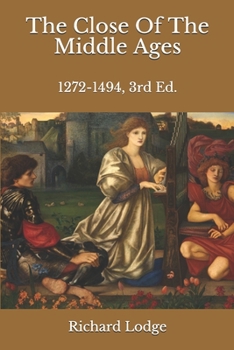The Close Of The Middle Ages: 1272-1494, 3rd Ed.
Ever since A.D. 962 the German monarchy had been combined The Empire and the German monarchy. with the Roman Empire, and the union proved harmful to both offices. The universal authority of the Emperor could hardly fail to become shadowy and unreal, but it was rendered more distasteful to non-German princes and peoples by the immediate association of the Empire with a distinct kingdom, with which they might have causes of quarrel. And as the Empire became more and more localised, so the German kingship became steadily weaker. The shadowy character of the higher dignity tended to produce the same impression as to the more real and practical office. The princes who held their lands of the German king aimed more and more at the independence of the external kings and rulers, who, in feudal theory, held of the Emperor. The imperial claims brought the Empire into collision with the Papacy, and the German monarchy suffered from the blows which the Emperor's power received in the great Contest of Investitures. Moreover, the Empire carried with it the crown of Italy; and the constant waste of money and men in the vain attempt to establish a real dominion in the southern peninsula, not only weakened individual German rulers, but also led to constant absences from Germany which gave occasion to their northern vassals to acquire independence. Above all the Empire was, by tradition and by the very conception of the office, elective.
Format:Paperback
Language:English
ISBN:B08HG8YBCC
ISBN13:9798681797432
Release Date:January 1
Publisher:Independently Published
Length:602 Pages
Weight:1.92 lbs.
Dimensions:1.3" x 6.0" x 9.0"
Related Subjects
HistoryCustomer Reviews
0 rating





